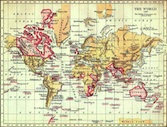
Paper 2 Assignment
Length: 3-4 typed, double-spaced pages (750-1000 words, but can be longer if you wish)
October 20:
Paper due in class (paper version) or uploaded to Blackboard by 9 p.m.
Guidelines
- This paper does not require research, although secondary sources may be helpful. Rather, its purpose is to demonstrate your ability to choose a significant, appropriately limited topic in literature; to investigate and support a thesis of your own devising; to analyze with skill and insight the evidence from specific literary works; and to present the whole in a clearly organized, well-written fashion.
- The essay should incorporate at least one work read in class. You may choose your own topic for the paper if you consult with me ahead of time.
- Your paper should be limited enough to provide a specific thesis and a close analysis of the texts; repeating broad, obvious generalities (i.e., "Women were limited by society's expectations in the nineteenth century") or ideas we have discussed in class will not be sufficient.
- Content is very important, but good organization, sentence structure, and editing skills are also important. Citations and the Works Cited page should follow MLA format. More guidelines for turning in papers in this class are here: http://public.wsu.edu/~campbelld/format.htm.
Topics
These topics are broad and are meant to suggest ideas to you; you should think about developing your own ideas using these as guidelines.
English 372
Dr. Campbell
Paper 2 Assignment
Length: 3-4 typed, double-spaced pages (750-1000 words, but can be longer if you wish)
October 20: Paper due in class (paper version) or must be uploaded to Blackboard by 9 p.m.
Guidelines
- This paper does not require research, although secondary sources may be helpful. Rather, its purpose is to demonstrate your ability to choose a significant, appropriately limited topic in literature; to investigate and support a thesis of your own devising; to analyze with skill and insight the evidence from specific literary works; and to present the whole in a clearly organized, well-written fashion.
- The essay should incorporate at least one work read in class. You may choose your own topic for the paper if you consult with me ahead of time.
- Your paper should be limited enough to provide a specific thesis and a close analysis of the texts; repeating broad, obvious generalities (i.e., "Women were limited by society's expectations in the nineteenth century") or ideas we have discussed in class will not be sufficient.
- Content is very important, but good organization, sentence structure, and editing skills are also important. Citations and the Works Cited page should follow MLA format. More guidelines for turning in papers in this class are here: http://public.wsu.edu/~campbelld/format.htm.
Topics
These topics are broad and are meant to suggest ideas to you; you should think about developing your own ideas using these as guidelines.
1. During this segment of the course, we've read a number of works in which characters are mad or act irrationally, often while in the grip of the delusion that they are engaged in the only sane course of action. Is their madness inherent in their characters? Or does it respond to some external stimulus, such as the advent of new knowledge or a movement toward modern industrial life? Choosing one or two works, develop a thesis and write an essay in which you discuss the role of madness as well as the stylistic features of how it is conveyed. You may want to compare characters, for example.
2. How do stories such as “The Luck of Roaring Camp,” “The Bride Comes to Yellow Sky,” “A White Heron,” and “The Monster” challenge our understanding of genres such as the fairy tale, the quest story, or the Western? You can choose other stories, too, as long as you write about at least one work we’ve read in class.
3. Read another work by an author we’re discussing (such as Stephen Crane, Bret Harte, Charles Dickens, Sarah Orne Jewett, or Charles W. Chesnutt) and compare it with the work we are discussing.
4. This period of the early nineteenth century saw a redefinition of the concept of the hero, as we've discussed in class: Romantic heroes, Byronic heroes, outlaw heroes, and so on. Write an essay in which you closely analyze the concept of the hero in light of one or two characters, especially some who would not appear to be heroes in other periods in history. How can Frederick Douglass or Dr. Trestcott be considered a hero, for example? Or you might want to write about this: what is an “outlaw,” and who defines the outlaw?
5. Choosing at least one work we've read, analyze a theme, image, character, or other feature in light of another work by the same or another author. For example, you might analyze a feature or theme (incest? living burial? the role of the artist?) in "The Fall of the House of Usher" in light of another Poe story.
6. Several works we’ve read, including Hard Times, “A White Heron” and Narrative of the Life of Frederick Douglass, have the character’s initiation or progress from innocence into experience at the center. Choosing at least two works, analyze the characters in light of the theme of initiation.
7. Your own topic. Please let me know what you're planning to do.
